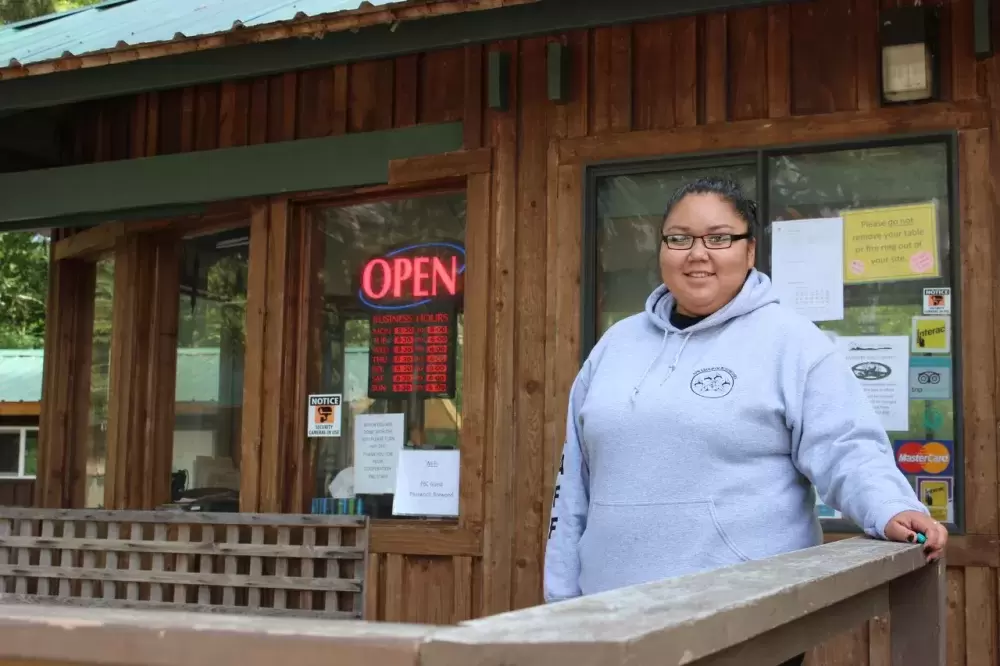Those employed by First Nations-owned businesses are breathing sighs of relief this week, with an announcement from Indigenous Services Canada to include these corporations in a wage subsidy program for operations shuttered by the COVID-19 pandemic.
Millions of Canadians are now off the job due to social distancing directives from public health officials concerned about the spread of the highly contagious coronavirus that leads to the respiratory disease COVID-19. In an effort to mitigate widespread economic collapse, in early April the federal government introduced a program for employers that covers 75 per cent of employees’ wages for as much as 12 weeks.
But this didn’t help First Nations-owned businesses to keep their employees on the payroll, as the wage subsidy didn’t apply to these limited partnerships. The Huu-ay-aht Group of Businesses feared a collapse of the Bamfield economy, where the First Nation has made large investments in recent years to become the largest employer in the area.
“We’ve strived really hard to become participants in the local economy by purchasing the motel, the store and the Kingfisher resort,” said Huu-ay-aht Chief Councillor Robert Dennis Sr. “We don’t have the reservations that we did in past years…Usually we’re really busy at the campground at the motel and Kingfisher - that’s not happening.”
As the coronavirus began its grip on British Columbia’s economy in March, the HGB’s forestry revenue declined by 34 per cent, sales at the Bamfield Market & Café fell by 44 points while hospitality proceeds dropped 65 per cent. Dennis expects larger losses in April, prompting fears that the Huu-ay-aht Group of Businesses might have to trim its budget by 30-50 per cent compared to previous years, but positive news came from Indigenous Services Canada on Wednesday, April 29.
“[T]he federal government has further adjusted the eligibility for the [Canada Emergency Wage Subsidy] to Indigenous government-owned corporations and partnerships to support them in their efforts to retain employees who are still on the payroll, and to rehire workers previously laid off so that they are able to count on a steady income through the current challenges,” reads the federal department’s announcement.
During the busy summer months HGB employs the equivalent of 55 full-time staff, but these positions have hung in the balance as the continued presence of COVID-19 is shrinking any possibility of a tourism season in 2020. The wage subsidy is what the First Nation had been hoping for as it tried to keep as many staff working as possible.
“For the campground, there is some work that we can do,” noted Dennis. “We can put these workers to work doing other things: campground expansion, campground development, campground maintenance, all that kind of stuff. There’s things that we can do that are part of the normal work anyway.”
Economic fears are particularly high in the Indigenous tourism sector, where many companies are still in their crucial early years of operations. Courtney-Alberni Member of Parliament Gord Johns has raised this issue at the federal level with a recent letter sent to Mélanie Joly, Canada’s minister of Economic Development and Official Languages.
“As an emerging part of regional economies, with new start-ups and new initiatives, Indigenous tourism is particularly vulnerable to the downturn all businesses are experiencing. These Indigenous business leaders need support from this government,” wrote Johns. “While some businesses are open now, they don’t know if they’ll have the capacity to expand operations during the normally busy season. This is crucial not only for business owners, but also for the workers who rely on this income.”
The potential loss of income has brought a social concern to the Huu-ay-aht, which expects the First Nation’s annual budget to increase if cuts are made to its group of businesses. More requests from citizens for supports are anticipated if income decline persists.
“The biggest thing that will happen to us – and we’ve seen this in the past – is that when we have a higher unemployment rate, our social service costs in our nation go up dramatically,” said Dennis. “What that means is people are applying more for patient travel, social assistance, any other programs that we have.”
The Canada Emergency Wage Subsidy provides payments retroactively from March 15, extending until June 6. As response to COVID-19 changes each day, Dennis was optimistic that the feds would eventually include the Huu-ay-aht’s businesses in the wage subsidy program.
“Generally, we’ve found that there’s been a quick response when things are missed. We’ve seen the Prime Minister get up and include something that was excluded from any previous announcement,” he said. “We’ve got to work to together to deal with the impacts of the COVID-19 crisis.”







